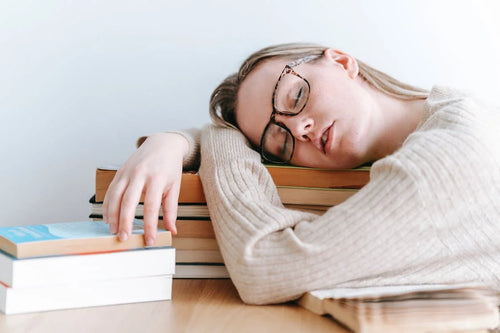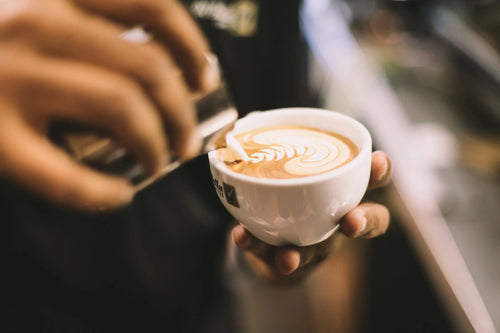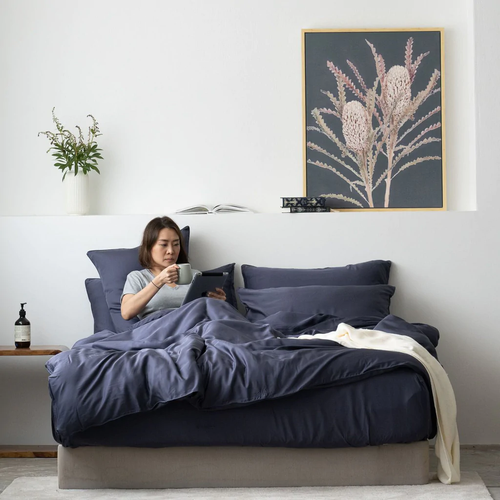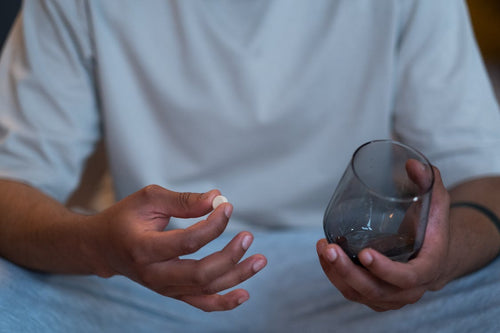
Image by George Milton from Pexels
Everyone stays up too late at least once in their life, whether to beat work deadlines or prepare for a big school presentation. After burning the midnight oil, one tends to get drowsy and sluggish the day after, especially in the afternoon. Some turn to a cup of coffee to have the energy to power through the rest of the day, while others opt to take a nap, hoping to wake up feeling refreshed.
It’s a no-brainer that napping can leave one fully alert and offer more body health benefits. However, not all of them are beneficial. To learn more about the tricks to getting well-rested after every daytime doze, read this guide.
What Does A “Nap” Mean?
A nap is a short period of sleep, usually during the day. It is known by many names: mid-day sleep, siesta, cat nap, afternoon nap, and power nap.
This break is usually taken as a response to fatigue and drowsiness. It lets you rest, relax, and recharge. It can also improve mood, alertness, and performance.
Napping Vs. Sleeping: What Are Their Differences?

Image by EKATERINA BOLOVTSOVA from Pexels
A nap and a sleep are both forms of rest. They may be similar, but they are different, particularly in duration. Their differences go beyond the question "how long is a nap vs. sleep"? Here is a comparison to help you distinguish them from each other:
|
Differences |
Nap |
Sleep |
|
Duration |
Lasts for about 30 minutes |
Lasts for at least six hours |
|
Cycle |
Doesn’t allow a complete sleep cycle |
Several sleep cycles occur |
|
Inclusion of REM |
Usually only involves the non-REM stage of sleep |
Involves REM and non-REM sleep |
|
Responsiveness |
Lets one respond to sounds or activities |
Causes one to be entirely unresponsive to any kind of sound or activity |
|
Time |
Usually taken during the day |
Usually taken at night |
Is Napping Good For Your Health?
A mid-day sleep can help you beat the afternoon slump and keep you from getting drowsy during the day. When done correctly, it can improve health. Here are the benefits of napping:
Increases Productivity
If you feel tired and sleepy after eating, a short nap can help you recharge. It increases alertness and speeds up reaction time, making you more productive and boosting your performance at work or school.
Boosts Memory

Featuring Weavve’s Cotton Classic Set in Sandshell
One of the reasons why you should nap is it can improve memory. According to research, it enhances the ability to learn and recall information. So whether you are studying for an exam or learning a new skill, consider having a siesta between learning sessions.
Improves Mood
Another benefit of taking a nap is improving emotional regulation and promoting emotional processing. In particular, it reduces stress, overthinking, and impulsive tendencies, keeping you from being frustrated.
What Are The Downsides Of Napping?
Mid-day rest can be healthy to address sleep deprivation. But it also has its fair share of pros and cons.
Note that it can leave you feeling groggy and more exhausted, depending on the time and how long you nap. This is called sleep inertia, a period of being disoriented after waking up from a brief sleep.

Image by Edward Jenner from Pexels
It can also be counterproductive for people with insomnia and other sleep disorders or medical conditions. A study even found that chronic fatigue syndrome sufferers may experience poor cognitive functioning and drowsiness after taking afternoon naps. Not to mention how they can be disruptive when falling asleep at night.
To make the most out of the health benefits of napping, make time for a doze only if you are:
- Expecting to lose sleep for a night (or several nights)
- Experiencing unexpected sleepiness
- Trying to incorporate daytime short rests into your routine and lifestyle
What Is The Optimal Nap Time?
Five-minute naps don’t give you the most benefit. Meanwhile, extended rests longer than 30 minutes up to 60 minutes to 90 minutes can cause drowsiness and cognitive decline. Prolonging them may even trigger migraine attacks or headaches.

Image by Miriam Alonso from Pexels
So how long should a power nap be? The best nap duration is 20 minutes. This ideal length offers the most recovery benefits as it lets the mind and body rest without going through deeper sleep stages. Some would say dreaming during a short rest is a sign of sleep deprivation since it usually takes over 45 minutes to enter the dream stage, which is REM sleep.
When Is The Best Time To Take A Nap?
You might be wondering: why am I always sleepy? Or why do I feel sleepy after eating? Feeling sluggish in the middle of the day is common. To improve focus and productivity, try squeezing in some doze time to your schedule to give you a boost.

Featuring Weavve’s Signature TENCEL™ Deluxe Set in Sky Blue
The best time to nap during the day depends on your age, medication use, sleeping schedule, and need for sleep. But generally, it is best done in the early afternoon.
How Does Caffeine Affect Naps?
Caffeine naps, also called coffee naps, boost energy levels more than sleeping or drinking coffee alone. This combo is believed to get rid of adenosine, a sleep-promoting chemical.

Featuring Weavve’s Cotton Classic Set in Cloud White
It makes the caffeine compete with the chemical receptors in the brain, helping you feel less drowsy. To get the most out of this hack, consume about two cups of coffee 15-20 minutes before a 20-minute nap.
How Do You Effectively Take A Power Nap?
Taking a power nap can promote optimal wellness and a healthy lifestyle, but only when done properly. Otherwise, it would leave you feeling more tired. Here are some tips on enjoying the benefits of a 20-minute nap and getting energized:
Set An Alarm

Image by Enikő Tóth from Pexels
Consider power nap duration. As mentioned, longer naps tend to cause drowsiness. For this reason, keep naps short by setting an alarm for only 20 minutes.
Avoid Coffee Before Bed
Caffeine naps can give you an energy boost, but taking coffee before bed can disrupt nighttime sleep. Since caffeine is a stimulant, avoid consuming it at least six hours before bed.
Make Your Sleep Environment Comfortable
A restful environment helps you get the most napping benefits. Contrary to one of the common sleep myths that warmer bedrooms are better, a dark place with a comfortable room temperature - ideally around 18°C to 26°C - is the most ideal.

Featuring Weavve’s Signature TENCEL™ Deluxe Set and Silk Eye Mask
To eliminate distractions, wear earplugs and an eye mask. Snuggling under soft and cooling sheets also does wonders.
Create A Routine
People are creatures of habit. This means having systems in place can make you well-rested after a nap. That said, prioritize a productive morning routine and an evening routine to unwind or relax. Engaging your senses can also help you drift off faster and wake up refreshed.
If you tried these tips and still feel exhausted and sleepy after your siesta, consider assessing your sleep routine. You can also seek help from a professional who can check if your condition is serious and requires treatment.
Discover Weavve’s Collection
Weavve’s TENCEL™Lyocell Sheets

Featuring Weavve’s Signature TENCEL™ Deluxe Set in Sand Taupe
Silky touch with a sheeny finish, our Signature TENCEL™ bed sheets derived from Lyocell fibers are incredibly smooth and gentle on the skin. These eco-friendly sheets are prized for their cooling properties, helping you doze off comfortably even with the afternoon heat.
Weavve’s Cotton Bed Sheets

Featuring Weavve’s Cotton Classic Set in Tea Rose
Our cotton sateen sheets with a luxurious sheen and smooth feel will definitely make for a blissful rest! Lightweight and buttery soft, these sheets are packed with extra-long staple fibers woven to perfection.
Weavve’s Power Nap Kit

Featuring Weavve’s The Power Nap Kit
Drift off to a relaxing midday rest you deserve with this incredible trio - a single Signature TENCEL™ Lyocell Pillow Case, Eye Mask, and Tea Pack.
Weavve’s Eye Mask

Featuring Weavve’s Silk Eye Mask
Made from 100% vegan silk, our plush eye mask helps you doze off well so you wake up rested, refreshed, and ready for the rest of the day’s adventures.
RESPONSIBLY MADE
Here at Weavve, we pride ourselves on being committed to responsible sourcing, production, sale, and use of our products. We take a great effort in ensuring that our decisions account for all the people who help build our products, the environment, and our consumers. From Standard 100 by Oeko Tex® certified sheets to SEDEX certified factories, Weavve makes sure that everyone is cared for at every step of the way.

100 DAYS TO SLEEP ON IT
Buying a sheet should be easy and delightful. Here at Weavve, we are fully committed to making exceptional products and our 100 day free return policy makes it easy for you to take the leap of faith, especially for first-time users. Learn more about our 100 Day Free Trial.






































